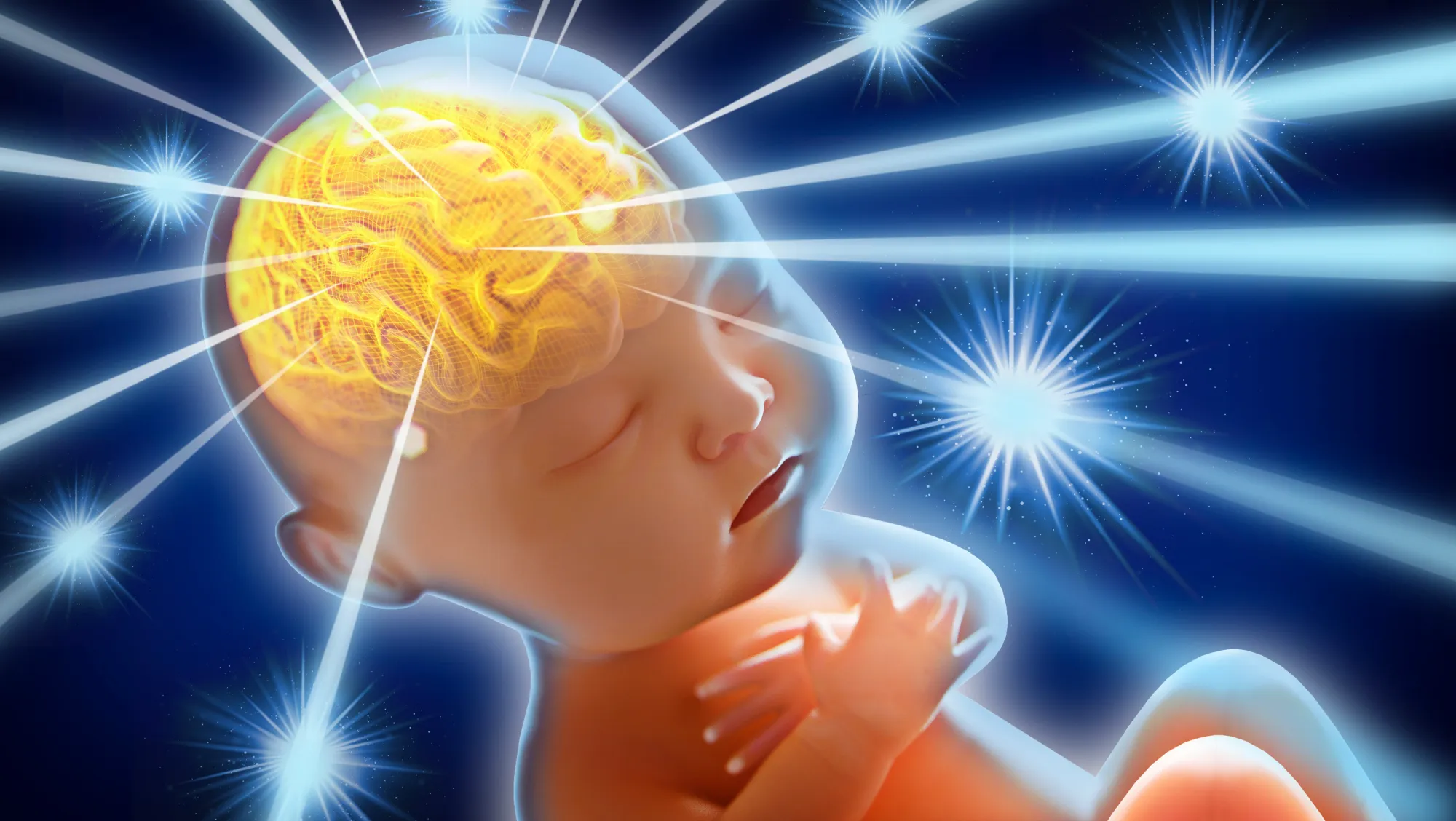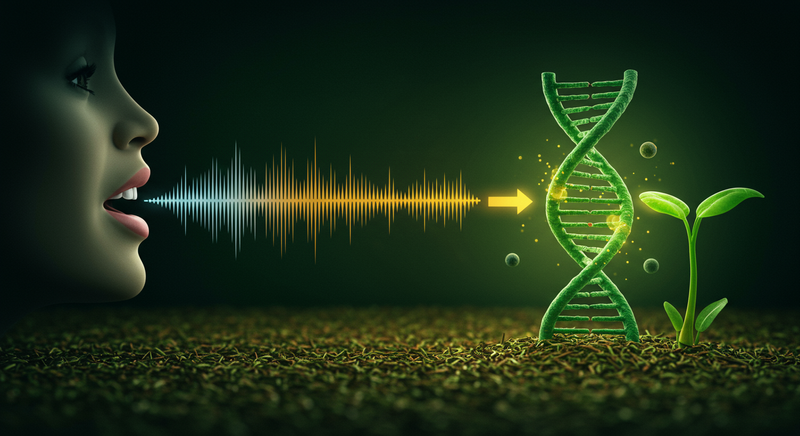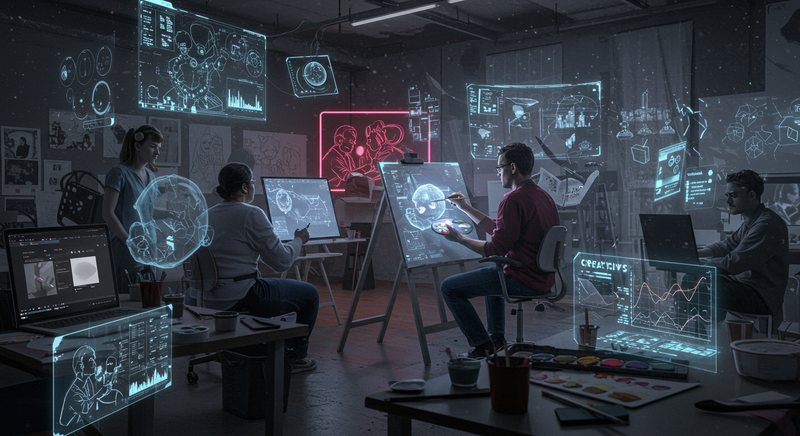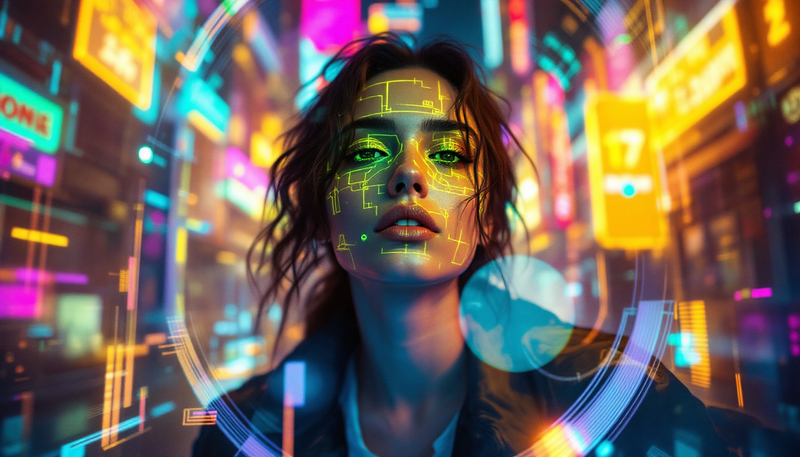AI and Bioengineered Civilization: Steering the Course of the Future
Emerging from the chrysalis of traditional human potential, a new paradigm is rising, shaped by the twinned forces of Artificial Intelligence (AI) and Bioengineering. This transformative era signals the emergence of a bioengineered civilization - a frontier where the distinctions between biology and technology blur, and the reins of human

Emerging from the chrysalis of traditional human potential, a new paradigm is rising, shaped by the twinned forces of Artificial Intelligence (AI) and Bioengineering. This transformative era signals the emergence of a bioengineered civilization - a frontier where the distinctions between biology and technology blur, and the reins of human evolution become an achievable reality. As individuals striving to find our bearings amidst this seismic shift, it's imperative we grasp these concepts, comprehend their implications, and envisage the brave new world they promise.
Understanding Artificial Intelligence and Bioengineering
At the heart of this sweeping transformation lie two fields of study that are redefining the contours of possibility: Artificial Intelligence and Bioengineering. Understanding their foundations and trajectories is essential to navigating the emerging landscape of a bioengineered civilization.
Artificial Intelligence, or AI, encompasses the study and design of intelligent machines capable of performing tasks that would normally require human intelligence. From voice recognition to autonomous decision-making, AI has transitioned from science fiction to an integral part of our daily lives, shaping industries and societal structures alike.
On the other hand, Bioengineering is a multidisciplinary field that applies engineering principles to biological systems, with the intent to analyze, manipulate, and replicate them. Bioengineering's significant achievements include advances in genetic modification, prosthetics, and even organ printing, heralding a future where the human body's limitations are not just mitigated but transcended.
Collectively, these fields represent the vanguard of our civilizational shift. Their potential extends far beyond their current applications, heralding a future where technology and biology interweave in increasingly complex and profound ways. It is this intersection that gives rise to the concept of a bioengineered civilization, a prospect both thrilling and daunting in its implications.
Bioengineered Civilization: A Closer Look
A bioengineered civilization represents a radical reimagining of our societal fabric, shaped by the interplay of biology and technology. In essence, it envisions a society where human capabilities are augmented, extended, and in some cases, replaced by artificial systems, resulting in an enhanced form of existence that blends the biological and the artificial in unprecedented ways.
In a bioengineered civilization, the boundaries of human potential are continually expanded and redefined. Through bioengineering, we are able to manipulate the very building blocks of life, making it possible to eliminate genetic disorders, enhance physical and cognitive abilities, and extend healthy lifespans.
AI, on the other hand, imbues our surroundings with an unprecedented level of intelligence, automation, and adaptability. It enables us to create intelligent machines that can learn, reason, and make decisions, significantly enhancing our problem-solving capabilities and efficiency.
Moreover, the intersection of AI and bioengineering opens up a myriad of possibilities. Imagine a future where AI-powered prosthetics respond seamlessly to the wearer's intentions, or where intelligent nanobots patrol our bodies, constantly monitoring and addressing health issues.
However, while these advances present vast potential for societal progress and human betterment, they also raise a host of ethical, moral, and philosophical questions. The prospect of a bioengineered civilization challenges our conventional notions of what it means to be human, what constitutes a meaningful life, and how we should navigate our relationships with our fellow beings and the world at large.
Implications for Society
In a bioengineered civilization marked by AI integration, the social implications are significant and wide-ranging. On a macro level, the synthesis of biology and technology could dramatically reshape society's structures and systems, driving fundamental changes in areas such as healthcare, education, work, and governance.
In the healthcare sector, the combination of AI and bioengineering could usher in a new era of personalized, predictive, and preventative medicine. Advanced genetic technologies could allow us to detect and treat diseases at their earliest stages, while AI algorithms could analyze vast amounts of medical data to predict health issues before they occur.
Education could also be revolutionized, with AI facilitating personalized learning tailored to each student's needs and pace. Meanwhile, bioengineered enhancements could potentially improve cognitive abilities, enabling us to learn more effectively and efficiently.
The workplace too would not be immune to these changes. We could see an increased reliance on AI and automation, significantly changing the nature of many jobs and necessitating a radical rethink of our education and training systems. Furthermore, the possibility of bioengineered cognitive enhancement could have profound implications for issues such as meritocracy, equality, and competition.
In the realm of governance, AI's predictive and analytical capabilities could enable more informed decision-making and efficient public services. However, they also raise serious questions about privacy, surveillance, and the role of humans in decision-making processes.
On a micro level, the transition towards a bioengineered civilization could have a profound impact on our personal lives and identities. The potential for enhancement and augmentation could force us to confront difficult questions about the nature of self, identity, and humanity. If we can alter our physical, cognitive, and emotional capacities, what does that mean for our understanding of who we are? Where do we draw the line between human and machine?
Furthermore, as AI and bioengineering become increasingly integrated into our bodies and lives, our relationship with technology could shift from an external tool to an integral part of our selves, raising profound questions about autonomy, consent, and what it means to be human in a bioengineered world.
In the end, the implications for society are vast and complex. As we venture further into this new era, we will need to engage in deep and sustained dialogue to navigate the challenges and opportunities that lie ahead. The journey towards a bioengineered civilization will not just be about mastering the technologies of AI and bioengineering, but also about understanding and shaping their impacts on society and the human condition.
Preparing for the Future
In the face of such seismic shifts, preparation and foresight are crucial. But how does one prepare for a bioengineered future steeped in AI? The answer lies in education, conversation, and ethical consideration.
Education should be at the forefront. As AI and bioengineering continue to advance, it's imperative that society keeps up. An understanding of these technologies, their capabilities, and their potential impacts is no longer optional; it's a necessity. In our schools, this means including classes in fields such as AI, bioengineering, data science, and ethics. For adults, this means taking advantage of continuing education opportunities, online courses, and resources.
Next, we need to promote open and inclusive conversations about these technologies. These conversations should not just be confined to scientific or academic communities but should involve the general public. After all, the shift towards a bioengineered civilization will affect all of us, and everyone should have a say in how these technologies are developed and implemented.
Ethical consideration must be another priority. We must consider not only what we can do with AI and bioengineering but also what we should do. What are the ethical limits of human enhancement? How do we balance the potential benefits with the risks and challenges? These are questions that require careful thought and consideration.
Moreover, regulations will play a vital role in guiding the development and application of these technologies. Policymakers need to work closely with scientists, ethicists, and other stakeholders to establish clear and effective rules that promote innovation while protecting public interest.
Finally, we need to embrace adaptability and resilience. In a rapidly changing world, the ability to adapt to new circumstances and technologies is vital. This may mean redefining our views of work, learning new skills, or changing our lifestyles to incorporate new technologies.
Looking ahead, it's clear that our journey into a bioengineered future won't be easy. It will require hard work, dedication, and a willingness to navigate complex ethical and societal issues. However, with preparation, dialogue, and careful consideration, we can help ensure that the coming era of AI and bioengineering benefits all of humanity.
Conclusion
As we stand on the precipice of unprecedented transformation, the future of our civilization may indeed be sculpted by the synergistic progression of AI and bioengineering. We've explored the facets of these powerful technologies, delved into the concept of a bioengineered civilization, and examined the profound implications such a shift might have on society.
This new epoch, where biology and technology intertwine, will fundamentally change what it means to be human, and it could very well reshape the essence of life itself. It's a prospect that is equally exhilarating and disconcerting, pregnant with unimaginable possibilities and fraught with ethical quandaries.
However, with an open dialogue, a commitment to education and ethical foresight, and an embrace of adaptability, we can navigate these uncharted territories. As we prepare to step into this new era, let's do so with caution, but also with a sense of optimism and wonder. After all, we are not mere passengers in this journey; we are its navigators.
Our task, then, is to guide this ship with a steady hand and a clear eye, mindful of the potential perils, but also keenly aware of the incredible promise that the fusion of AI and bioengineering holds. The horizon is unknown, but it brims with the potential for discovery, and it beckons us to set sail into the future. With careful stewardship, we can ensure that this bioengineered civilization serves as a beacon of progress, improving the human condition and opening new frontiers for humanity to explore.
This vision is not merely a science fiction tale. It's a real future that we are already beginning to shape. The dawn of the bioengineered civilization is upon us, and it's our responsibility to navigate this new era wisely, ensuring that we steer the course towards a future that honors our humanity while pushing the boundaries of what is possible.
As we embark on this exciting voyage, let us remember that technology is a tool. Its ultimate value depends on how we use it. Let's wield it with wisdom and use it to craft a future where technology and biology work together, unlocking our true potential and leading us into a new era of prosperity and progress - a bioengineered civilization where the best of humanity thrives.




